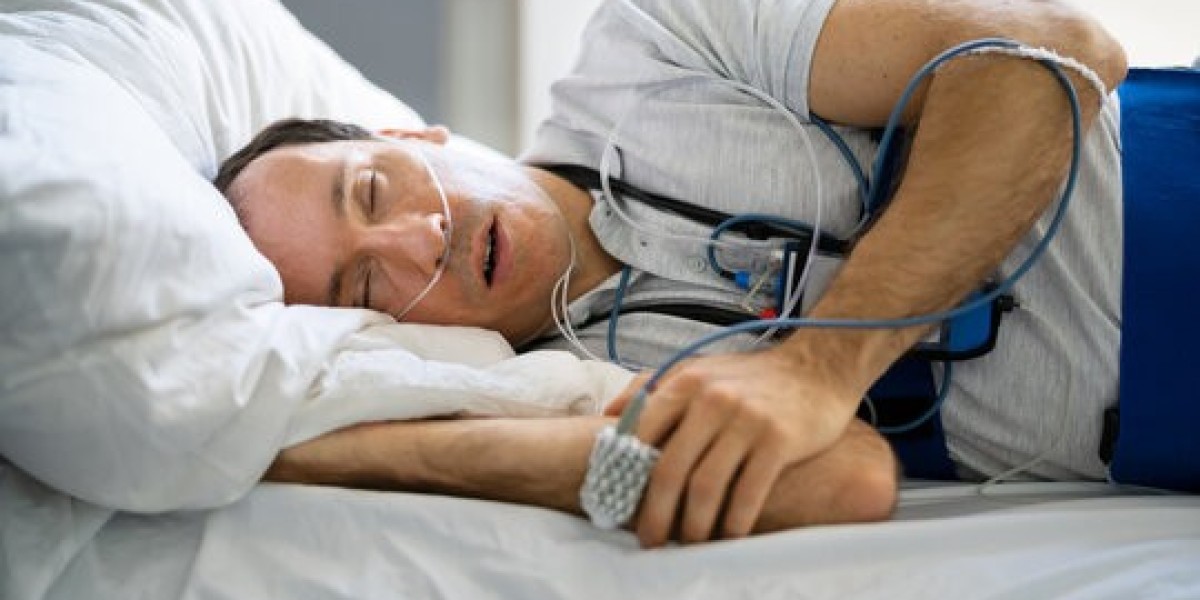Sleep disorders affect millions of people, disrupting their ability to function during the day and diminishing their overall health. For residents of Westchester County, NY, accessing high-quality sleep disorder treatment is essential for improving sleep quality and overall well-being. The Sleep Disorders Institute in Westchester County, NY provides comprehensive diagnostic and therapeutic services to help individuals overcome sleep-related challenges.
Sleep disorders come in various forms, including insomnia, sleep apnea, restless legs syndrome, and narcolepsy. Left untreated, these conditions can lead to severe health complications such as cardiovascular disease, diabetes, and cognitive decline. This guide explores available treatments, common causes, and how to seek professional help in Westchester County, NY.
Common Types of Sleep Disorders
1. Insomnia
Insomnia is one of the most prevalent sleep disorders, characterized by difficulty falling asleep, staying asleep, or waking up too early. Chronic insomnia can result in fatigue, irritability, and impaired concentration.
Causes of Insomnia
Stress and anxiety
Poor sleep hygiene
Caffeine or alcohol consumption
Medical conditions like depression or chronic pain
Treatment for Insomnia
Cognitive Behavioral Therapy for Insomnia (CBT-I)
Prescription and over-the-counter sleep aids
Lifestyle modifications, including relaxation techniques
2. Sleep Apnea
Sleep apnea is a condition where breathing repeatedly stops and starts during sleep. This disorder is serious and often requires medical intervention.
Symptoms of Sleep Apnea
Loud snoring
Episodes of stopped breathing
Morning headaches
Daytime sleepiness
Treatment Options
Continuous Positive Airway Pressure (CPAP) therapy
Oral appliance therapy
Lifestyle changes such as weight management and positional therapy
3. Restless Legs Syndrome (RLS)
RLS causes an uncontrollable urge to move the legs, often disrupting sleep and leading to daytime drowsiness.
Causes of RLS
Genetic factors
Iron deficiency
Neurological conditions
Treatment for RLS
Iron supplementation if deficient
Dopamine agonists
Lifestyle changes, including stretching and exercise
4. Narcolepsy
Narcolepsy is a neurological disorder that affects the brain's ability to regulate sleep-wake cycles, leading to excessive daytime sleepiness and sudden sleep attacks.
Symptoms of Narcolepsy
Sudden loss of muscle tone (cataplexy)
Sleep paralysis
Vivid hallucinations upon falling asleep
Treatment for Narcolepsy
Stimulant medications
Antidepressants
Scheduled naps to manage daytime sleepiness
How Sleep Disorders Are Diagnosed
A proper diagnosis is the first step toward effective treatment. Sleep specialists in Westchester County, NY, use advanced diagnostic tools to assess sleep patterns and determine the underlying cause of sleep disturbances.
Diagnostic Methods
Polysomnography (Sleep Study): An overnight test that records brain waves, oxygen levels, heart rate, and breathing patterns.
Home Sleep Apnea Testing (HSAT): A simplified version of polysomnography that evaluates sleep apnea risk.
Multiple Sleep Latency Test (MSLT): A daytime test used to assess excessive daytime sleepiness and diagnose narcolepsy.
Treatment Approaches for Sleep Disorders in Westchester County, NY
Effective treatment depends on the type of sleep disorder and its severity. Here are some widely used treatment methods:
Medical Treatments
CPAP Therapy: The gold standard for treating obstructive sleep apnea.
Medications: Includes sedatives for insomnia, dopamine agonists for RLS, and stimulants for narcolepsy.
Oral Appliances: Custom-made devices that help keep the airway open during sleep.
Lifestyle and Behavioral Therapies
Cognitive Behavioral Therapy (CBT-I): A proven method to address chronic insomnia.
Sleep Hygiene Education: Avoiding stimulants before bedtime, maintaining a consistent sleep schedule, and creating a sleep-friendly environment.
Diet and Exercise Modifications: Reducing alcohol intake, engaging in regular physical activity, and maintaining a balanced diet.
Finding the Right Sleep Disorder Specialist in Westchester County, NY
When seeking treatment, it is crucial to choose a certified sleep specialist or clinic. The best providers offer:
Board-certified sleep medicine specialists
Comprehensive sleep studies and treatment plans
Personalized care tailored to individual needs
Conclusion
Sleep disorders can significantly impact health, productivity, and quality of life. Seeking timely treatment from a reputable sleep disorders institute in Westchester County, NY is crucial for long-term well-being. With advancements in sleep medicine, effective solutions are available to help individuals regain restful sleep and improve overall health.
Contact a Specialist Today
For expert diagnosis and treatment of sleep disorders, reach out to Vector Sleep Diagnostic Center at (718) 830-2800. Their team of specialists offers comprehensive care to help patients achieve restful and healthy sleep.
Frequently Asked Questions (FAQs)
1. How do I know if I have a sleep disorder?
Common signs include excessive daytime sleepiness, difficulty falling or staying asleep, loud snoring, and waking up feeling unrefreshed.
2. What should I expect during a sleep study?
A sleep study involves monitoring sleep patterns, brain activity, and vital signs overnight in a specialized clinic or at home.
3. Can sleep disorders be cured?
Some sleep disorders can be managed effectively with treatment, while others, such as sleep apnea, require long-term management.
4. Are there non-medical treatments for sleep disorders?
Yes, lifestyle changes, behavioral therapy, and dietary modifications can significantly improve sleep quality.
5. How long does it take to see improvements with treatment?
Results vary depending on the disorder and treatment plan, but many patients notice improvements within a few weeks.
6. Is sleep apnea dangerous if left untreated?
Yes, untreated sleep apnea increases the risk of heart disease, stroke, and high blood pressure.
7. What age group is most affected by sleep disorders?
Sleep disorders can affect all age groups, but older adults are more prone to conditions like sleep apnea and insomnia.
8. Can children develop sleep disorders?
Yes, children can experience sleep apnea, night terrors, and insomnia. Pediatric sleep specialists provide tailored treatments.
9. Do insurance plans cover sleep disorder treatments?
Many insurance providers cover sleep studies, CPAP therapy, and consultations with sleep specialists. It's best to check with the provider.
10. Where can I find expert sleep disorder treatment in Westchester County, NY?
Specialized sleep centers in Westchester County, NY, provide comprehensive diagnosis and treatment options for various sleep disorders.









